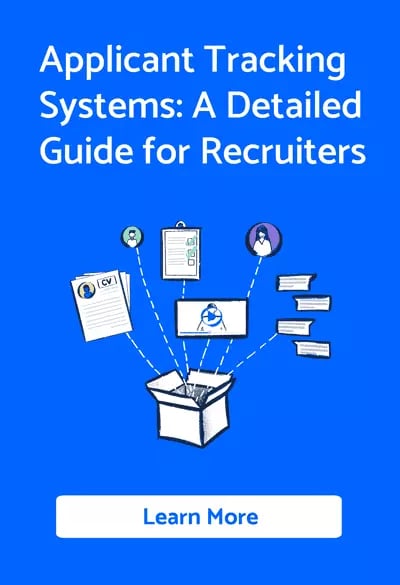This article explains the different types of funding startups can get.
There are a bunch of different types of investment you can get for your startup.
For example, if you're a SaaS business, you can get investment quickly on platforms like Capchase, which has funded 100s of SaaS companies. We have used Capchase here at GoHire to accelerate early growth. Plus, you don’t need to give up equity.
Huge amounts are invested in startups each year; venture capital firms invest over £ 300 billion a year globally in emerging startups.
Related Read: 7 Best SaaS Tools For Startups in 2023
So, there is significant money available from different types of funding if you have the right idea, business and offers.
Specifically, we’re looking at 7 types of funding for startups:
- Bootstrapping
- Friends and family
- Angel investors
- Venture capital
- Crowdfunding
- Accelerators and incubators
- IPO
Right, small to large, let’s do it…
1. Bootstrapping
Bootstrapping funding the startup with your own money or relying on revenue generated by the business.
This is a common method for startups in their early stages.
Basically, bootstrap funding is when a startup uses its own resources, creativity, and ingenuity to fund itself. That means they're not relying on outside investors or loans to get their business up and running.
Think of it like starting a lemonade stand as a kid. You use your own lemons, sugar, and cups to make the lemonade and sell it to your neighbours. You don't ask your parents for money, and you don't go to the bank for a loan. You just use what you have to make a profit.
For startups, this can mean cutting costs wherever possible, doing everything in-house, and being scrappy as heck. It's not easy, but it can be rewarding because you retain more control over your business and don't have to answer to outside investors.
Bootstrap funding is often used by startups in the early stages, when they don't have a lot of revenue yet and can't get traditional financing. But some startups choose to bootstrap all the way through, even when they're making big bucks.
Some examples of successful companies that are completely bootstrapped include:
- Survey Monkey
- GoPro
- MailChimp
- Wayfair
2. Friends and Family
This type of funding, involving investments from family and friends, seems fairly obvious. Yep, exactly as it sounds.
Imagine you have a great business idea but don't have enough money to get started. You could go to the bank and ask for a loan, but banks are notoriously stingy with their cash, especially for new businesses.
That's where your family and friends come in! Family and friend funding is when you ask your loved ones for help funding your startup. It's like a modern-day version of a barn-raising, but you're building a business instead of building a barn.
So, you need £10,000 to get your business off the ground. You could ask your mom, dad, sister, brother, aunt, uncle, cousin, and friends to chip in some cash. Maybe your mom gives you £2,000, your best friend gives you £500, and your uncle gives you £1,000. Before you know it, you have the £10,000 you need to start.
Of course, it's important to remember that when you're asking your family and friends for money, you're not just asking for a handout. You ask them to invest in your business and believe in your vision. And you need to be prepared to pay them back or give them a share of the profits down the road.
But the good news is family and friend funding can be a great way to get started, especially if you don't have a lot of other options. And who knows? Maybe your business will be so successful one day that your family and friends will ask you for a loan instead.
3. Angel Investors
Angel investors are wealthy individuals who provide startup capital in exchange for equity ownership. They often invest in early-stage startups and may provide mentorship and expertise to help your business succeed.
Angel investors are kind of like business fairy godmothers. They're wealthy individuals willing to invest their money in startups they believe in. In exchange for their investment, they usually get a share of ownership in the company.
Before you start imagining a group of angel investors with wings and halos floating down from the clouds, it's important to remember that they're still investors. That means they're looking for a return on their investment, so they'll want to see that your business is making money and growing.
Angel investment can be a great way to get the funding you need to realise your idea. Plus, they often have valuable experience and connections that can help your business succeed.
In the UK, the angel investment network is a good place to start searching for an angel investor.
4. Venture Capital
VC stands for venture capital, which is a fancy way of saying "big money from rich people."
They typically provide larger investments than angel investors and are more likely to invest in companies that have already demonstrated some success. In exchange, VCs typically require a significant ownership stake in the company.
Venture capitalists are like the cool kids at the startup party. They're wealthy individuals or firms willing to invest a lot of money in startups with high growth potential.
Think of it like a business version of the TV show Who Wants to Be a Millionaire? You pitch your idea to a panel of venture capitalists, and if they like it, they'll invest a lot of money in your business. But if you mess up or don't meet their expectations, they'll send you home with nothing.
But before you start getting too excited about the prospect of getting filthy rich, it's important to remember that venture capitalists are investing in your business because they expect to make a big return on their investment. That means they'll want to see that your business is growing quickly and has the potential to become a huge success.
VC funding can be a great way to get the money you need to take your business to the next level. But it's not for the faint of heart. You must be prepared to work hard, take risks, and grow your business fast.
5. Crowdfunding
Crowdfunding involves raising money from many people, often through online platforms like Kickstarter or Indiegogo. This can be a good option for startups with a unique product or service, as it allows them to gauge interest and raise funds before launching.
Here's how it works: You create a crowdfunding campaign. You set a funding goal and offer rewards or equity in exchange for investment. Then, you share your campaign with everyone you know and hope they'll share it with their networks too.
Crowdfunding can be a great way to get the funding you need without relying on traditional investors or loans. Plus, it can help you build a community of supporters invested in your success.
But it's not just about the money.
Crowdfunding can also help you test your idea, get feedback from potential customers, and build buzz around your business.
Monzo, Freetrade, and Brewdog are just a few examples of fast-growing startups that have revived funding via crowdfunding.
6. Accelerators and Incubators
Accelerators and incubators are programs that provide startups with funding, mentorship, and resources to help them grow. In exchange, they may take an equity stake in the company.
These programs can be a good option for startups looking for support and guidance in their early stages.
They're organisations that provide funding, mentorship, and resources to help startups grow and succeed.
Think of it like the Avengers, but instead of superheroes fighting crime, it's a group of experts helping startups take over the world. You apply to an accelerator or incubator program, and if you're accepted, you get access to a whole bunch of cool stuff.
Accelerators are like boot camps for startups.
They usually last a few months and provide intensive mentorship, workshops, and networking opportunities. They often culminate in a demo day, where startups pitch their ideas to investors and try to secure funding.
Incubators, on the other hand, are like cosy nests for baby startups. They provide office space, resources, and support to help startups get off the ground. They're often longer-term programs that focus on ongoing support and guidance.
Both accelerators and incubators can be a great way to get funding and support for your startup. They often connect to investors and can help you refine your business plan and strategy.
But before you dream of flying around in a high-tech suit like Iron Man, it's important to remember that accelerator and incubator programs can be competitive and demanding. You'll need to be ready to work hard, learn fast, and grow your business at lightning speed.
7. Initial Public Offering (IPO)
Finally… the big one, IPOs.
An IPO is when a company goes public and offers shares of stock for sale to the public.
This is typically only an option for established companies with a proven track record of success.
IPOs can be a significant source of funding, but they also come with many regulatory requirements and can be expensive to undertake.
You'll need to hire a team of lawyers and accountants, prepare a bunch of financial documents, and convince investors that your company is worth investing in. It's like trying to win over a new group of friends at a party, but instead of bringing chips and dip, you're bringing your company's financial statements.
If everything goes well, your company will go public, and you'll suddenly have a lot of new friends (i.e., investors) willing to buy shares of your company. It's like suddenly becoming the most popular kid at school, but instead of being cool, you're financially successful.
But going public isn't all fun and games. It can be stressful and time-consuming, and you'll have to deal with many regulations and scrutiny from investors and regulators.
Lucid Motors, Rivian, and Wise, are a few examples of recent IPOs.




